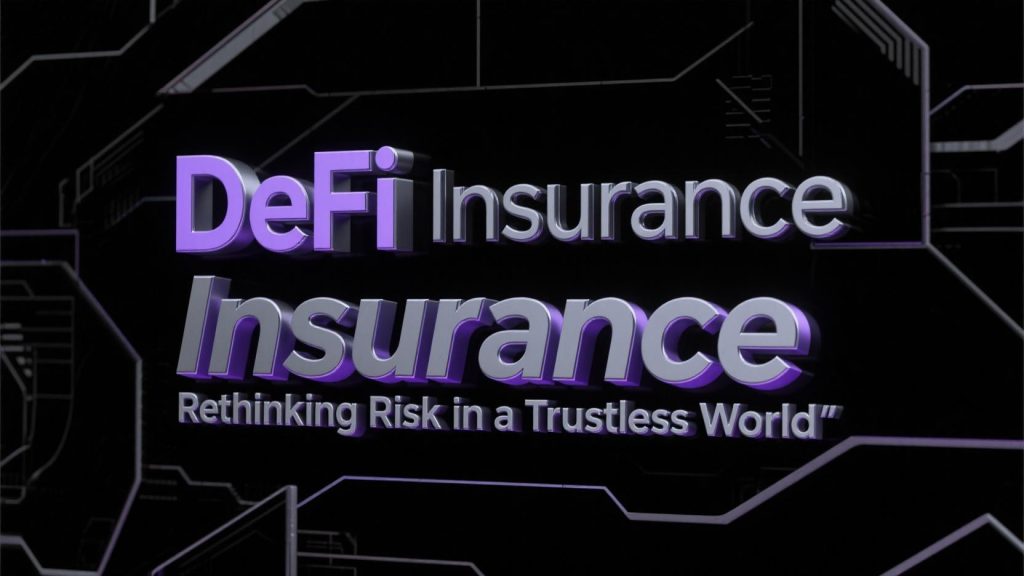Smart Contracts, Real Coverage — The Next Frontier of Risk Management
Traditional insurance is built on intermediaries, claims adjusters, and paper-heavy processes — all of which add cost and delay. But in the decentralized financial ecosystem, a new paradigm is emerging: DeFi-native insurance, where protection is distributed, automated, and often entirely permissionless.

The Problem: DeFi’s Vulnerability
In 2024 alone, DeFi platforms suffered over $1.9 billion in exploits — from oracle manipulation to smart contract bugs. Users are increasingly demanding protocol-level protection, not just high returns.
Enter DeFi insurance.
Platforms like Nexus Mutual, InsurAce, and Unslashed Finance allow users to purchase cover against:
Smart contract failure
Exchange hacks
Stablecoin depegging
Coverage is often underwritten by other users who stake tokens into risk pools and receive premiums in return.
How It Works
Users choose a protocol to insure (e.g., Aave, Curve).
They pay a premium (often in ETH or stablecoins).
Claims are triggered automatically, or voted on via DAO governance depending on the policy type.
Some protocols now integrate oracle-based event triggers that initiate payouts without human approval — ensuring speed and objectivity.
New Risk Models: Decentralized, But Not Blind
DeFi insurers use algorithmic models and community-based due diligence to assess risk. For example:
Smart contract audits feed into dynamic premium pricing.
Risk assessors are incentivized through tokens to flag weaknesses.
Claim decisions are voted on by token holders with reputational weight.
“We’re not just decentralizing coverage — we’re decentralizing trust itself,” says Elaine Park, contributor at a risk DAO.
Limitations and the Road Ahead
Moral hazard: anonymous underwriters can underprice risk.

Claims manipulation: DAO voting can be influenced by large holders.
Regulatory ambiguity: In some jurisdictions, DeFi insurance could be classified as illegal or unlicensed.
Still, regulators are showing growing interest in hybrid models, where DeFi insurance protocols partner with traditional reinsurers — opening a new chapter for compliant, scalable crypto coverage.
Key Takeaway
DeFi insurance isn’t just a product — it’s a proof-of-concept for how trust, risk, and protection can operate without centralized institutions. As the space matures, it may redefine how we insure everything from loans to lives.
